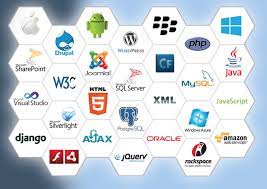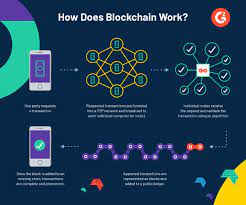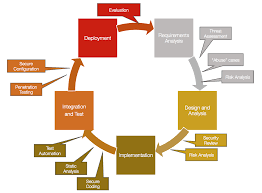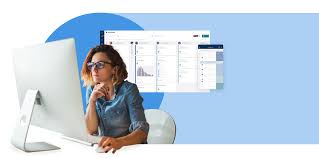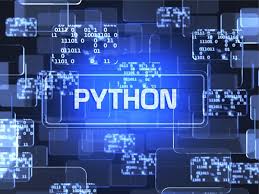Exploring the Latest Trends in Software Development Technologies
The Latest Software Development Technologies
Software development is a dynamic and rapidly evolving field, with new technologies constantly emerging to streamline processes, enhance user experiences, and drive innovation. Keeping up with the latest trends in software development is crucial for developers and organizations looking to stay ahead of the curve. Let’s explore some of the cutting-edge technologies shaping the future of software development:
Artificial Intelligence and Machine Learning
AI and machine learning have revolutionized software development by enabling applications to learn from data, make predictions, and automate tasks. From chatbots to recommendation systems, AI-powered solutions are becoming increasingly prevalent across various industries.
Progressive Web Apps (PWAs)
PWAs combine the best features of web and mobile applications to deliver fast, reliable, and engaging user experiences. These lightweight apps can work offline, send push notifications, and provide a native app-like feel without requiring installation from an app store.
Blockchain Technology
Blockchain technology offers secure and transparent ways to handle transactions, data storage, and smart contracts. It is widely used in developing decentralized applications (dApps) and ensuring trust in digital interactions.
Serverless Computing
Serverless computing allows developers to focus on writing code without managing servers. With cloud providers handling infrastructure scaling automatically, developers can build scalable applications more efficiently while reducing operational costs.
Low-Code/No-Code Development Platforms
Low-code/no-code platforms empower users with varying technical backgrounds to create applications using visual interfaces and pre-built components. These platforms accelerate development cycles and enable rapid prototyping without extensive coding knowledge.
Internet of Things (IoT)
The IoT ecosystem continues to expand with interconnected devices gathering and sharing data in real-time. Software developers are leveraging IoT technologies to build smart solutions for homes, industries, healthcare, transportation, and more.
In conclusion, embracing these latest software development technologies can help developers create innovative solutions that drive business growth and enhance user experiences in today’s digital landscape.
7 Essential Tips for Mastering the Latest Software Development Technologies
- Explore serverless computing for scalable and cost-effective solutions.
- Adopt containerization with Docker and Kubernetes for easier deployment and management.
- Implement microservices architecture for flexibility and modularity in your applications.
- Leverage artificial intelligence and machine learning to add intelligent features to your software.
- Embrace DevOps practices for faster development cycles and improved collaboration between teams.
- Utilize blockchain technology for secure transactions and data integrity in your applications.
- Stay updated on the latest programming languages like Rust, Kotlin, or Swift to enhance your development skills.
Explore serverless computing for scalable and cost-effective solutions.
When looking to enhance scalability and cost-effectiveness in software development, exploring serverless computing can be a game-changer. By leveraging serverless architectures, developers can focus on writing code without the burden of managing servers. This approach not only streamlines the development process but also allows for automatic scaling of resources based on demand, leading to more efficient and cost-effective solutions. Serverless computing is a powerful tool that enables developers to build scalable applications while minimizing operational complexities and costs.
Adopt containerization with Docker and Kubernetes for easier deployment and management.
Adopting containerization with Docker and Kubernetes offers software developers a streamlined approach to deployment and management. By encapsulating applications and their dependencies into containers, Docker ensures consistency across different environments, making deployments more efficient and reliable. Kubernetes, on the other hand, provides automated scaling, load balancing, and self-healing capabilities, simplifying the orchestration of containerized applications. Together, Docker and Kubernetes empower development teams to deploy software seamlessly, manage resources effectively, and enhance scalability in modern software development workflows.
Implement microservices architecture for flexibility and modularity in your applications.
Implementing microservices architecture in your applications can significantly enhance flexibility and modularity. By breaking down complex systems into smaller, independent services that communicate through APIs, developers can achieve greater agility in software development. Microservices enable teams to work on different components simultaneously, making it easier to scale and update specific features without affecting the entire application. This approach promotes better fault isolation, resilience, and overall efficiency in building modern software solutions.
Leverage artificial intelligence and machine learning to add intelligent features to your software.
Incorporating artificial intelligence (AI) and machine learning (ML) into software development can significantly enhance the capabilities of your applications by adding intelligent features. By leveraging AI and ML, developers can create software that not only performs tasks but also learns from data, adapts to user behavior, and makes informed predictions. This integration allows for the automation of repetitive tasks, improved decision-making processes, and personalized user experiences. For instance, using AI-driven analytics can help identify patterns in user interactions, enabling more tailored content recommendations or dynamic interface adjustments. As a result, incorporating these technologies can lead to more efficient systems that offer greater value to users and provide a competitive edge in the market.
Embrace DevOps practices for faster development cycles and improved collaboration between teams.
Embracing DevOps practices in software development is essential for achieving faster development cycles and fostering improved collaboration between teams. By integrating development and operations processes, DevOps streamlines workflows, automates tasks, and enhances communication across departments. This approach not only accelerates the delivery of high-quality software but also promotes a culture of continuous improvement and shared responsibility among team members. Embracing DevOps principles can lead to more efficient development cycles, reduced errors, and increased productivity within organizations striving for innovation and agility in today’s competitive market.
Utilize blockchain technology for secure transactions and data integrity in your applications.
Incorporating blockchain technology into your applications can significantly enhance security and ensure data integrity for transactions. By leveraging blockchain’s decentralized and immutable nature, you can create a secure environment where all transactions are transparent, tamper-proof, and traceable. This technology not only safeguards sensitive data but also builds trust among users by providing a reliable framework for conducting transactions securely. By utilizing blockchain technology, you can elevate the security standards of your applications and establish a foundation of trust with your users.
Stay updated on the latest programming languages like Rust, Kotlin, or Swift to enhance your development skills.
Staying updated on the latest programming languages such as Rust, Kotlin, or Swift is essential for enhancing your development skills in today’s fast-paced tech industry. Embracing new languages not only expands your programming toolkit but also opens up opportunities to explore innovative approaches to software development. By familiarizing yourself with these modern languages, you can stay ahead of the curve, tackle new challenges effectively, and ultimately elevate the quality of your coding projects.



